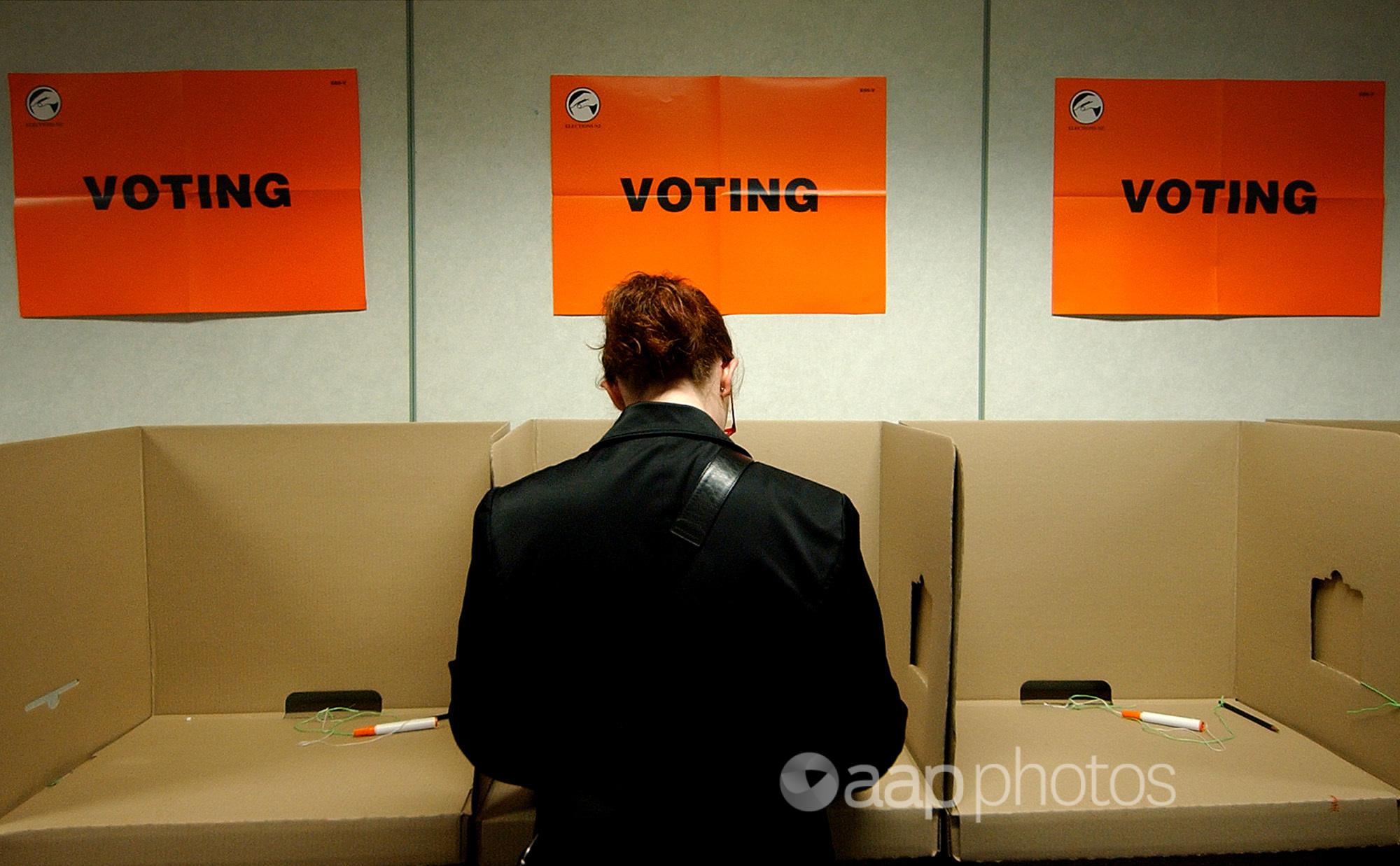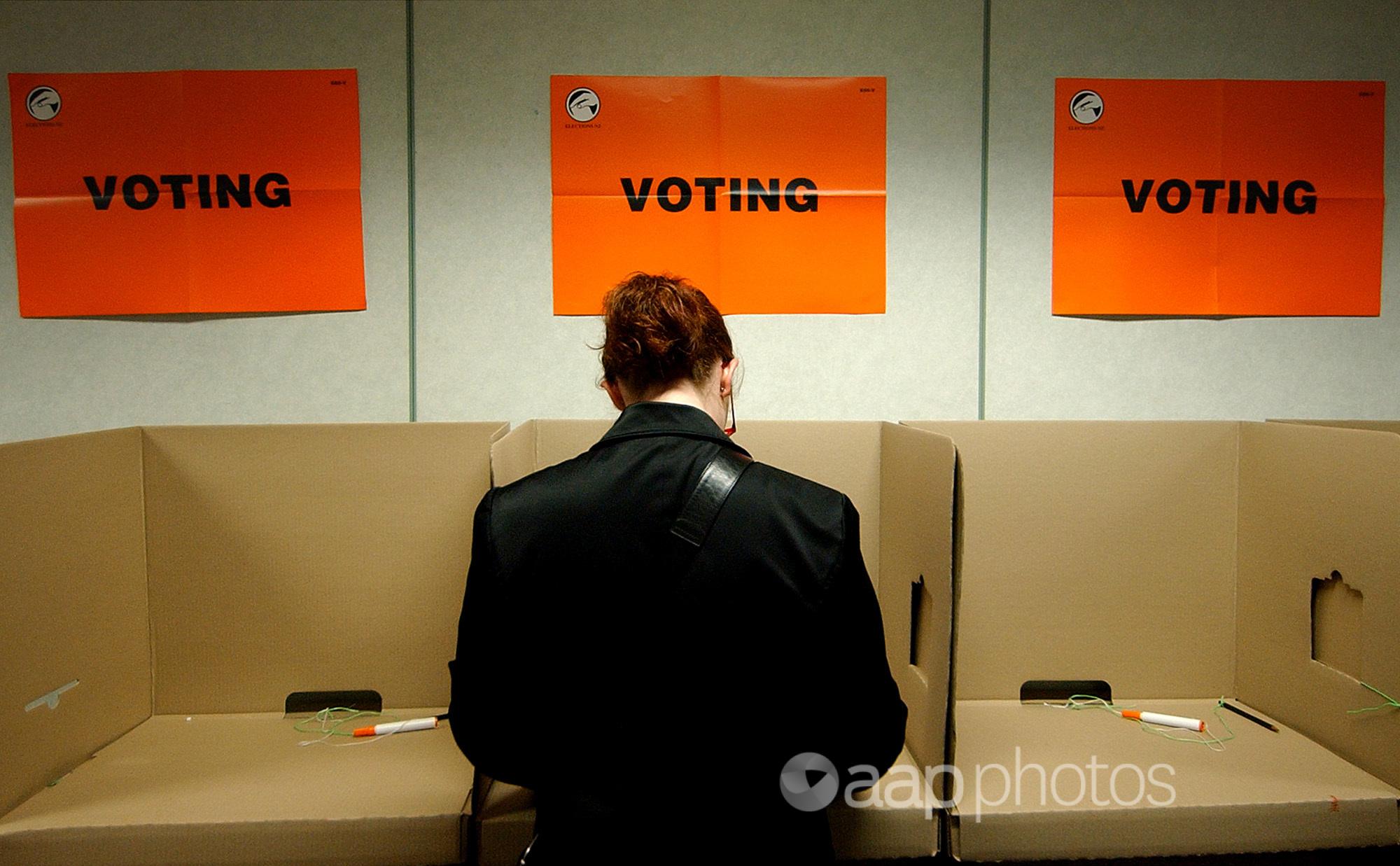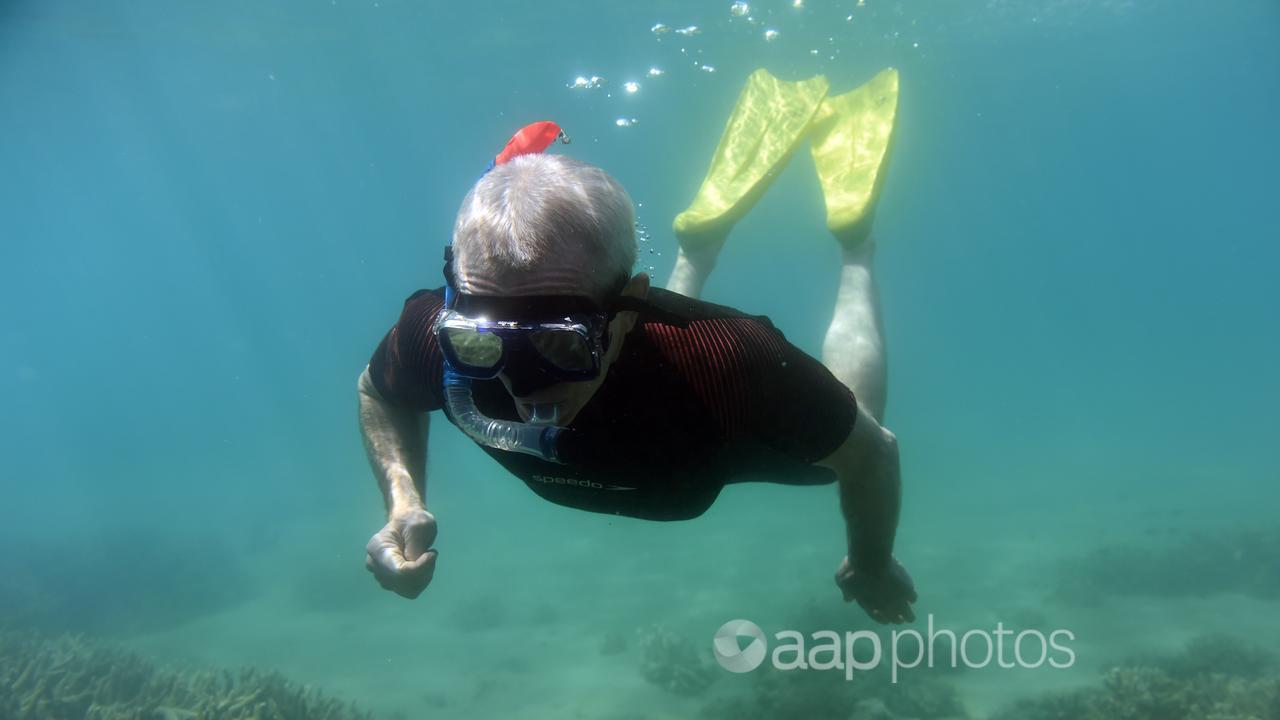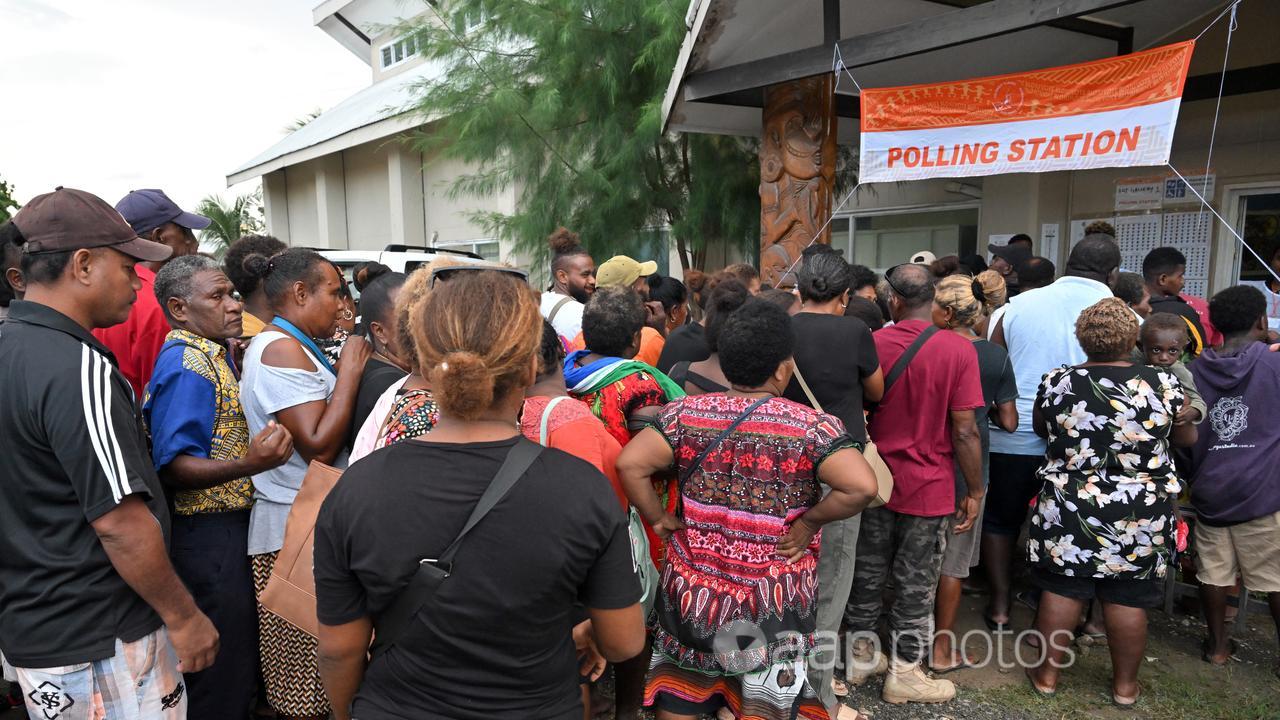AAP FactCheck Investigation: Did a greater proportion of 16 year olds vote in elections in Scotland, Wales and Austria than 18 and 20 year olds?
The Statement
“We’ve seen that with other countries like Scotland and Wales and Austria, where they actually have a greater turnout of 16 year olds voting, instead of, more than 18 and 20 year olds.”
Make It 16 representative Sophie Crozier, August 24, 2020.
The Analysis
A group advocating for New Zealand’s voting age to be lowered to 16 claims the move could boost voter turnout among young people.
The group Make It 16 has taken its case to the NZ High Court, claiming the current voting age of 18 is discriminatory and inconsistent with the Bill of Rights.
When Make It 16 representative Sophie Crozier appeared on The Project on Three on August 24, she said changing the voting age would have a positive impact on youth voter turnout. (Video mark 22min 57secs).
“And we’ve seen that with other countries like Scotland and Wales and Austria, where they actually have a greater turnout of 16-year-olds voting, instead of, more than 18- and 20-year-olds and I think that’s because you’re in your own safety bubble,” Ms Crozier said.
AAP FactCheck examined Ms Crozier’s statement that voter turnout was higher among 16-year-olds compared with 18- and 20-year-olds in elections in Scotland, Wales and Austria.
In 2007, Austria became the first country in the European Union to lower the voting age to 16 for all national elections. In the 2020 book, Lowering the Voting Age to 16: Learning from Real Experiences Worldwide, University of Vienna researcher Julian Aichholzer reviews the research on the policy change in a chapter titled Voting at 16 in Practice: A Review of the Austrian Case.
In total, three studies found turnout for 16- and 17-year-olds was generally higher than that for 18- to 20-year-olds in Austrian elections (page 4).
One of those studies, titled Are People More Inclined to Vote at 16 than at 18? Evidence for the First-Time Voting Boost Among 16- to 25-Year-Olds in Austria, looked at two regional elections in Austria and found turnout was higher among 16-year-olds than 18-year-olds in Vienna. However, in the region of Krems, turnout among 16-year-olds was slightly lower than that for 18-year-olds (Figure 1 and figure 2, page 357).
In both regions, 16-year-olds had a significantly higher turnout than 20-year-olds and the 16-17 age bracket had a higher turnout than the 18-20 age bracket (Table 2, page 358).
In both cases, 16-year-olds also had a slightly lower turnout than the electorate as a whole (Figure 1 and figure 2, page 357).
Aichholzer’s report also included novel research, analysing data from five elections between 2005 and 2015 (page 6). It found 16-year-olds were estimated to have a higher turnout than 18-year-olds in all but one election, and higher than 20-year-olds in all elections. (Figure 1, page 8).
The report concluded the level of turnout was “generally higher among 16- to 17-year-olds (compared to 18- to 20-year-olds) and similar to the electorate’s average (and here in particular amongst the 16-year-olds), as evidenced by official records from electoral lists.” (page 16)
The UK’s All-Party Parliamentary Group on Votes at 16, which was set up to investigate lowering the voting age, published a report in 2019 which found turnout among 16- and 17-year-olds in Austria has stabilised at around 8-10 percentage points higher than 18- to 24-year-olds (page 15). Scotland first lowered the voting age to 16 for the Scottish independence referendum in 2014, and in 2015 it lowered the voting age for the Scottish parliamentary elections and local government elections.
A UK Electoral Commission report on the referendum found the turnout of 16- and 17-year-olds was significantly higher than for 18-24 year olds. In total, 75 per cent of 16- and 17-year-olds claimed to have voted, compared with 54 per cent of those aged 18 to 24 years (page 64). This was based on a post-election survey of 1852 eligible voters and not the poll result itself (page 150).
In total, 109,593 16- and 17-year-olds registered (page 1), which is an estimated 90 per cent of those eligible to vote based on figures from the National Records of Scotland, which show there were 121,657 16- and 17-year-olds in 2014.
The Electoral Commission reports on the 2016 Scottish parliamentary elections and the 2017 local government elections did not include a breakdown of voter turnout in the 16-17 age group.
However, raw data from a 2017 survey produced for the commission after the local government elections shows 51 per cent of 16- and 17- year-olds claim to have voted, compared with 39 per cent of those aged 18 to 24 (page 12).
AAP FactCheck was unable to find figures for voter turnout among 16- and 17-year-olds in these elections.
In Wales, 16-year-olds have not yet had the opportunity to vote. In November 2019, the Senedd Cymru/Welsh parliament voted to lower the voting age to 16 for the 2021 Senedd elections.

The Verdict
AAP FactCheck found the statement that voter turnout was higher among 16-year-olds compared with 18- and 20-year-olds in elections in Scotland, Wales and Austria to be somewhat true.
Research in Austria and Scotland found more 16- and 17-year-olds voted compared with 18- to 24-year-olds. However, Wales has only recently lowered the voting age for the Welsh parliamentary elections and 16-year-olds will not get the opportunity to vote until next year.
Somewhat True – A part or parts of the claim are accurate but there is also a significant problem or inaccuracy.
* AAP FactCheck is accredited by the Poynter Institute’s International Fact-Checking Network, which promotes best practice through a stringent and transparent Code of Principles. https://aap.com.au/


















